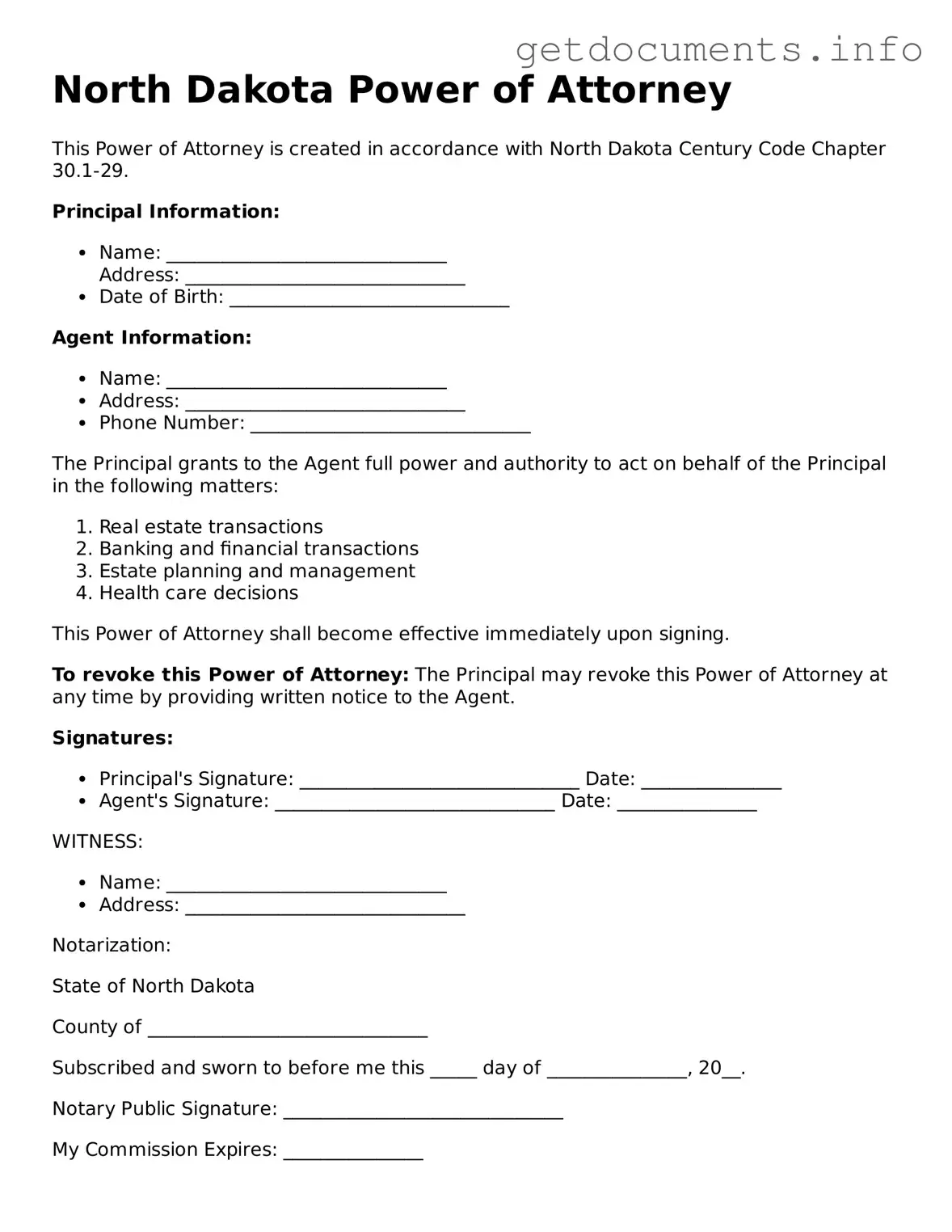Free Power of Attorney Template for North Dakota
A Power of Attorney form in North Dakota allows an individual, known as the principal, to appoint someone else, referred to as the agent, to make decisions on their behalf. This legal document can cover various areas, including financial and medical matters, ensuring that the principal's wishes are honored when they are unable to act for themselves. To take the next step, fill out the form by clicking the button below.
Access Power of Attorney Editor

Free Power of Attorney Template for North Dakota
Access Power of Attorney Editor
Got places to be? Complete the form fast
Fill out Power of Attorney online and avoid printing or scanning.
Access Power of Attorney Editor
or
⇩ PDF File
